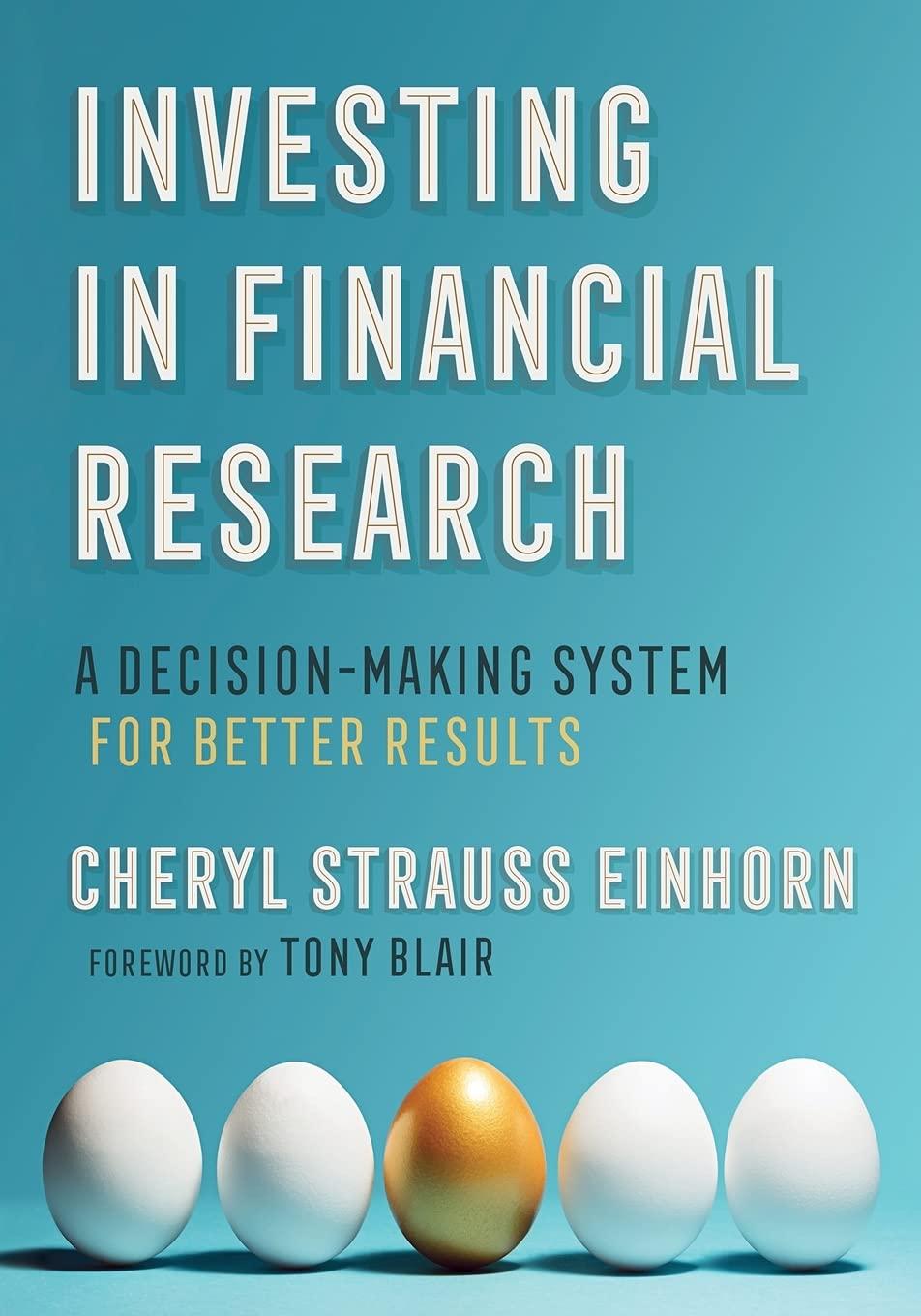Question
1) A firm has 1,000 shares of common stock outstanding with a par value of $15 per share. Upon liquidation, the firm has insufficient funds
1) A firm has 1,000 shares of common stock outstanding with a par value of $15 per share. Upon liquidation, the firm has insufficient funds and requires an additional $5,000 to repay its creditors. Which of the following statements is true about the shareholders' financial obligation?
a.If the share is purchased for $8, then the stockholders are obligated pay $2 per share to the creditors.
b.If the share is purchased for $20, then the stockholders are obligated pay an interest of $15 per share to the firm.
c.If the share is purchased for $15, then the stockholders are obligated to pay $15 per share to the bondholders.
d.If the share is purchased for $12, then the stockholders are obligated pay a dividend of $3 per share to the firm.
e.If the share is purchased for $10, then the stockholders are obligated to contribute $5 per share to the firm.
2) Which of the following events would make it less likely for a company to choose to call its outstanding callable bonds?
a.An increase in interest rates
b.A decrease in interest rates
c.An increase in the price of outstanding convertible bonds
d.A decrease in call premium
e.An increase in the maturity value of callable bonds
3) Which of the following statements is true of the yield to maturity for a bond?
a.The yield to maturity for a bond that sells at its par value comprises a capital gains yield equal to the face value of the bond.
b.The yield to maturity for a bond that sells at its par value entirely comprises an interest yield and has a zero expected capital gains yield.
c.The yield to maturity for a bond that sells at its par value comprises an interest yield equal to the capital yield on the bond.
d.The yield to maturity for a bond that sells at its par value is equal to the present value of interest payments received from the bond.
e.The yield to maturity for a bond that sells at its par value is equal to the future value of interest payments received from the bond.
4) A bond that only pays interest if the firm has sufficient earnings to cover the interest payments is called a(n):
a.callable bond.
b.putable bond.
c.convertible bond.
d.income bond.
e.indexed bond.
Step by Step Solution
There are 3 Steps involved in it
Step: 1

Get Instant Access to Expert-Tailored Solutions
See step-by-step solutions with expert insights and AI powered tools for academic success
Step: 2

Step: 3

Ace Your Homework with AI
Get the answers you need in no time with our AI-driven, step-by-step assistance
Get Started


